#Searching for Bobby Fischer
Explore tagged Tumblr posts
Text

young bobby fischer visiting mikhail tal in the hospital (1962)
#bobby fischer#chess#chessblr#chess history#mikhail tal#boris spassky#pawn sacrifice#searching for bobby fischer#"When Mikhail Tal fell ill#Fischer was the only player who visited him in hospital#a gesture which touched Tal deeply
30 notes
·
View notes
Text
Favorite Films
Rules: without naming them, post a gif from ten of your favorite films and then tag some people to do the same
Thanks for tagging me @mostlyinthemorning @saraminia and @ramonaflow !
(In which I reveal I both seldom watch movies and apparently can't remember anything I've seen this century.)










Has everyone else already done this while I sat around and racked my brain? I'll just go ahead and tag @flowertrigger @queenmabcreates @jamilas-pen @jettestar @characterassassination-at-9am.
#tag game#well these are mostly all of a certain era#and indicative of a certain type of girl#oh well#my favorite movie actually might be#searching for bobby fischer#but I could not find any gifs
8 notes
·
View notes
Text
youtube
why does this ad for a bunch of random family movies go so ridiculously hard
#bugsy malone#a dog of flanders#charlotte's web#andre#searching for bobby fischer#popeye#d.a.r.y.l.#peanuts#lassie#explorers#prehysteria#dragonworld#home video#Youtube
25 notes
·
View notes
Text
'The talented “Ripley” team is being feted ahead of the series premiere.
IndieWire can exclusively announce that Netflix-owned cineplexes The Paris Theater and The Bay will host two respective retrospective exhibits honoring “Ripley” writer/director Steven Zaillian and “The Talented Mr. Ripley” author Patricia Highsmith. Netflix’s limited series “Ripley” stars Andrew Scott in the titular lead role as the 1960s grifter who is hired by a wealthy man to travel to Italy to try to convince his vagabond son, Dickie Greenleaf (Johnny Flynn), to return to the States. The limited series focuses on a sinister core love triangle between Ripley, Dickie, and Dickie’s fiancée Marge Sherwood (Dakota Fanning). The show debuts April 4 on the streaming platform.
The Paris Theater screening program is titled “Criss Cross: Highsmith & Zaillian on Screen” and features adaptations of Highsmith’s “Carol” and “Strangers on a Train” alongside Zaillian’s “Searching for Bobby Fischer,” “Moneyball,” “The Girl with the Dragon Tattoo,” “American Gangster,” and “The Irishman,” all of which he wrote.
The Bay hosts “The Storyteller: A Steven Zaillian Retrospective” that will honor Zaillian with five features from his Oscar-winning filmography including his feature screenwriting debut “Awakenings.”...'
#The Talented Mr Ripley#Ripley#Netflix#Steven Zaillian#Patricia Highsmith#Andrew Scott#Dickie Greenleaf#Marge Sherwood#Dakota Fanning#Johnny Flynn#Strangers on a Train#Carol#American Gangster#The Irishman#The Girl with the Dragon Tattoo#Searching for Bobby Fischer#Moneyball
0 notes
Text
SEARCHING FOR BOBBY FISCHER- 1993 ⭐️⭐️⭐️

Seven year old New Yorker resident Josh has a talent for Chess beyond his years. His father and coach try to train him to be like the famous grandwizard Bobby Fischer which goes against his pleasant nature....
I do like chess movies. I dont think this one did as good a job of bringing the game to life as others ive seen but was a decent film.
Strong supporting cast of Lawrence Fishbourne, Joan Allen and Ben Kingsley.
Bobby Fischer denounced this film as part of a "jewish conspiracy" to make money off his name.
1 note
·
View note
Note
Do you have a comfort book or movie? If yes, which one? Mine`s The Green Mile.
Comfort books: A River Runs Through It Hearts in Atlantis The Body The Wind Through the Keyhole and, most recently, The Life of Chuck Comfort movies: Rudy Quiz Show Searching for Bobby Fischer Stand by Me A River Runs Through It
222 notes
·
View notes
Note
💋💢💌🩹 for any oc(s) you want?
Thanks so much for the ask! These are all good ones to answer for! This time I’m gonna talk about Erwyn because I feel like I don’t yap about him enough.
💋 - First kiss
This is currently something I’m debating about, but it’s either going to be Margaery or Sansa. Regardless, Margaery is his first true, requited feelings kiss, while the one he may have with Sansa may be more of a “we’re in this awful situation, but at least we have each other” kind of deal. Still don’t know if that one will happen though. It’s probably just going to be the Margaery kiss, but we shall see.
💢 - Person they can't stand
Oh there’s a long list of people Erwyn doesn’t like, but his arch nemesis in King’s Landing is another squire named Jason Celtigar. He is snobby and arrogant and insufferable and goes out of his way to make Erwyn miserable, and he can’t stand him at all. If you’ve ever seen Searching for Bobby Fischer, their dynamic is pretty much like the main character and his rival, except instead of being about chess it’s about being a knight.

💌 - First crush/love
Erwyn’s first love was Arya, and she is also his true love. He didn’t even realize what his feelings for her were until after she had left King’s Landing, and he was alone, left to process how he felt about her.
🩹 - Someone who was a source of trauma
Again, there are a lot of people who could fall into this category, but I would say one of the people at the top is certainly Cersei. Not only is she generally just horrible to him most of the time (not all of the time, but most of it), but she is also responsible for one of the worst moments of his life: the destruction of the Sept of Baelor. Not only does it result in the death of the woman he was in love with (which he had a brief vision of in the wildfire as the Sept exploded) and the suicide of his best friend, but it also leaves Erwyn permanently physically scarred. Right before the explosion, he was trying to reach the Sept to warn Margaery and everyone else but didn’t reach it in time. However, he was close enough to the blast that his left arm was burned by the wildfire pretty badly.
5 notes
·
View notes
Note
TAG GAME!! List your Top 5 Comfort Movies (right now), your Top 5 Discomfort Movies (right now), and your Top 5 Movies you would save from a world shattering event. Then tag 10 people.
Searching for Bobby Fischer
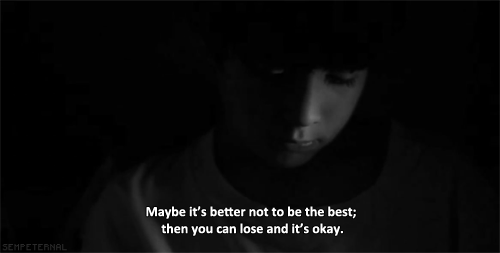
Cyrano

Jiro Dreams of Sushi

Mighty Morphin Power Rangers: The Movie
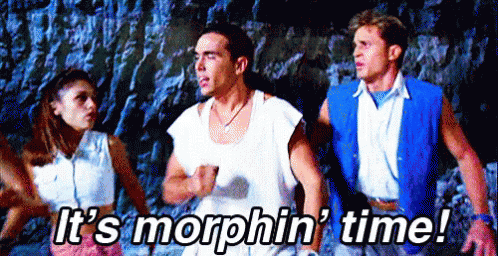
A Goofy Movie
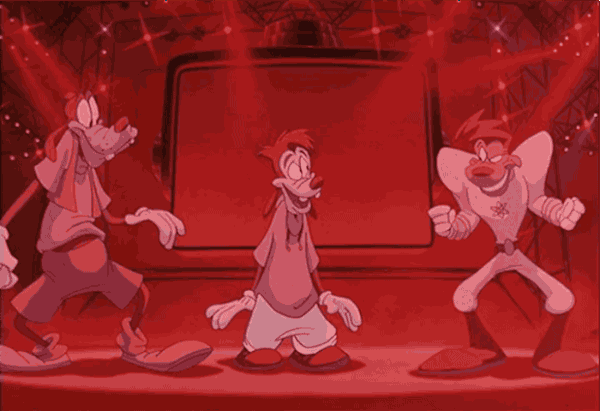
*
Rover Dangerfield

The Tale
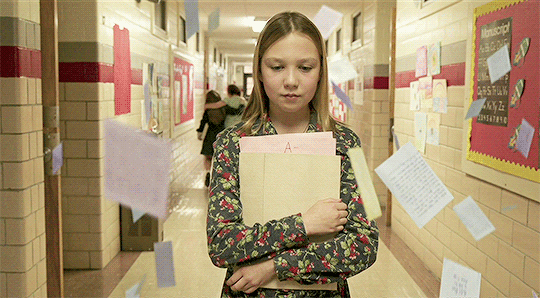
Casper

Black Christmas (2019)

The Deer King

*
The Thief and the Cobbler: Recobbled Cut Mark 4

Wolf Children
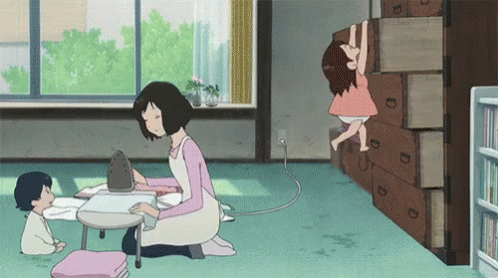
Princess Mononoke

The Hours
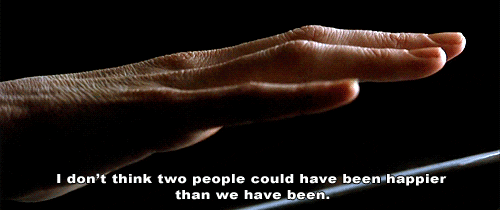
Baby's Day Out
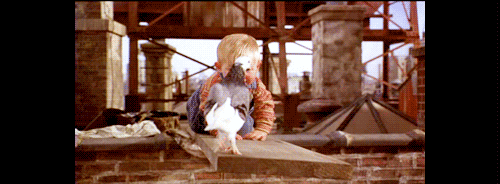
Tagging: @lordkingsmith @ajgrey9647 @skyland2703 @azurezfiction @regaliasonata @koragg1 @pkarchie @estel-eruantien @theonewhonothingknows @felonius-glitch
12 notes
·
View notes
Note
🔥
Send me a “ 🔥 “ for an unpopular opinion.
I don't think that people should use chess in scenes made to make their characters seem intelligent and pensive, or really make any sort of references to chess, unless they actually play and understand chess, and the culture that surrounds it—that is, what chess is like today and what chess was like in previous decades.
Typical portrayals of chess in media are full of errors that we chess players find silly and, frankly, infuriating. Boards oriented and set up incorrectly, pieces that have obviously been strewn about at random, the classic check answered with a checkmate or surprise checkmate against a player who's supposed to be highly skilled and in top form... movies and TV perpetuate a lot of myths and stereotypes about chess (the most egregious being the idea that we actually try to see fifteen moves ahead), and it's proper annoying.
Of course, the odd piece of media—especially those devoted entirely to chess, such as Searching for Bobby Fischer (the best example), Pawn Sacrifice, and The Queen's Gambit—does do very well in its portrayal of chess, but even those that do tend to fall just short of the mark of perfection, which makes you wish that they'd tried just a little harder to get everything absolutely bang-on.
Then you have me, who loves chess—I'm playing in a national tournament this weekend, in fact—and is therefore a verifiable nerd for it, which means... which means... that the way I portray chess in my writing is quite esoteric, really only able to be appreciated by people who understand the game as well as I do (and I have no delusions of being a master or anything like that), so, you know...
3 notes
·
View notes
Note
I feel like movies about cue sports and pro wrestling are sports movies, but pro wrestling itself isn't, if that makes sense. WWE is scripted but it has its own narrative structures and feels more like reality tv to me (someone who doesn't watch pro wrestling).
As for what's considered sport, I would also think of chess movies as as sports movies. Like for me Searching for Bobby Fischer hits all the same beats as a traditional sports movie.
Thank you for the response! At first I was hesitant whether movies about cue sports are actually "sport movies" but now that I've seen The Color of Money, I think I can safely say that cue sports are sports and movies about cue sports are therefore sport movies - the themes of competition, money, talent and persistence are present in both.
I think you're right about WWE being closer to reality TV than actual sport (the term that came to my mind is sports theatre). In many ways then, WWE is closer to the archetypal sports movie than it is sports itself. The biggest thing that divides WWE from "actual" sport would be authenticity, ie scripted competition vs actual competition, although you could argue that authenticity isn't necessarily a condition to define something as a sport (just think about how common match fixing is in sport).
However I have to drawn the line at chess movies as sports movies! I think that physical activity is a pretty necessarily qualifier for what is considered "sports", and personally I think that chess is closer to a boardgame than it is to sport. I think the similarity to sports movies is more to do with the fact that sports movies explore pretty universal ideas - What obstacles are in my path to success? What do I consider success? How does my desire for success in sports conflict with my other goals in life?
1 note
·
View note
Text
Comfort Movies
Thank you for tagging me, @mammameesh and @chelle-68
Fiddler on the Roof
The Princess Bride
Beaches
Dead Poets Society
When Harry Met Sally
Searching for Bobby Fischer
Good Will Hunting
I saw other people mention Heathers and Muriel's Wedding! Yes, those too, but it seems like cheating to steal them and I wouldn't know what to bump.
—
It took me a couple of hours yesterday to even come up with 7 movies I liked and have seen more than once? I guess it's safe to say that I'm not a movie person. And then I didn't post them because I dithered about the definition of "comfort movie."
But I saw a couple of other people admit they didn't watch movies often either, so in solidarity I'll add mine. This list really dates me! I wonder if I have even discovered any movies I like this century.
I think everyone has done this, but if not, you're it.
10 notes
·
View notes
Text
'Anything is Good' & Homelessness Insight
In a recent interview, Betsy spoke with Fred Waitzkin, an award-winning writer best known for his memoir, Searching for Bobby Fischer, which was adapted into an Oscar-nominated film. During the interview, Fred discussed his latest book, Anything is Good. They delved into the story’s protagonist, Ralph Silverman, and the circumstances that led to his homelessness. The conversation explored how…
#kickalzheimersassmovement#Author#Betsy Wurzel#Bobby Fischer#Finances#Fred Waitzkin#Homelessness#Unemployed#writing
0 notes
Text
'Patricia Highsmith’s 1955 novel The Talented Mr. Ripley has been made into two sterling films: 1960’s Plein soleil (Purple Noon) starring Alain Delon, and 1999’s The Talented Mr. Ripley headlined by Matt Damon, Jude Law, and Gwyneth Paltrow. Nonetheless, Netflix’s new Ripley stands head and shoulders above its predecessors (and most modern TV offerings) as an adaptation par excellence.
Over the course of its eight exhilarating episodes, all of them shot in breathtaking black-and-white by Oscar-winning cinematographer Robert Elswit (There Will Be Blood), this stellar thriller exhibits a formal precision, dexterity, and majesty that electrifies its tale of a small-time New York City grifter named Tom Ripley (a phenomenal Andrew Scott) who attempts to remake himself in Italy by slipping into the life of wealthy playboy Dickie Greenleaf (Johnny Flynn). Cunning cons and brutal murder ensue, all of them dramatized by the show with a suspenseful elegance and psychological complexity that does justice to its source material—and, in certain cases, adds new, incisive wrinkles to the oft-told tale.
Ripley is, quite simply, a small-screen masterpiece, and credit for its triumph goes, first and foremost, to writer/director Steven Zaillian. In the three decades since he won the Best Adapted Screenplay Oscar for Schindler’s List, the 71-year-old has collaborated with a who’s who of Hollywood greats, from Brian De Palma (Mission: Impossible) and Sydney Pollack (The Interpreter) to Ridley Scott (Hannibal, American Gangster, Exodus: Gods and Kings), David Fincher (The Girl with the Dragon Tattoo) and Martin Scorsese (Gangs of New York, The Irishman).
Along the way, he’s additionally penned the excellent Moneyball, helmed three of his own feature scripts (including the fantastic Searching for Bobby Fischer), and spearheaded HBO’s acclaimed The Night Of. Even with such a formidable résumé, however, Zaillian’s latest may be his finest achievement to date. Its scintillating style wholly wedded to its storytelling, and its meticulousness central to its simmering undercurrent of sociopathic madness, it’s a work of controlled Machiavellian malevolence, rife with tension and rich in detail and depth.
Guided by Zaillian’s virtuosic hand, Ripley is the rare example of genuine auteurist television, even as it simultaneously stands as a testament to the fact that projects are more likely to be great when they’re made by a collection of great artists. Now available on the streaming platform, it’s an early contender for end-of-year accolades. Consequently, we were elated to speak with Zaillian about the challenges of making his sensational series, collaborating with Scott and Elswit, and the enduring appeal of Highsmith’s famous novel.
Ripley is better directed than 99 percent of modern television, to a great degree because it’s been actually directed, with personality, flair, and guiding motifs and techniques. Was there any pushback to your approach, given that TV generally wants formal style to take a backseat to storytelling?
No, there was no pushback. The style that the show became… I started with the writing, I can’t write anything without imagining it. That being said, things obviously change when you’re shooting, and motifs come up and the style gets set at a certain point. But the whole time we were shooting, basically all anybody is seeing are dailies. It’s hard to tell from dailies what’s going on, you know [laughs]? Most people at the studios didn’t see anything until it was edited. So I had this great freedom to do what I wanted in terms of its look, and I spent a lot of time doing it. It was important to me that it looked good and felt good in terms of its tone, and most of the people who came to this come from film, and we approached it as one long movie.
Is the writing process different when you’re writing for yourself, versus another director?
I don’t write any differently. As I mentioned, I can’t write it without seeing it, so whether I’m writing for myself or someone else, it’s the same process. I don’t ever put in, close-up here or wide shot there. However, I do see it, so when I’m making my shot lists, I’ve already done it once before when I was writing it. But in terms of writing in a different way if someone else is going to direct it, no.
What made you want to tackle The Talented Mr. Ripley, which has been adapted multiple times before?
I’ve been wanting to do it since I read it, which I think was probably back in the ’80s. Certainly after Purple Noon but before The Talented Mr. Ripley movies. I saw it in a certain way and I wanted to try that, so when this opportunity came up, I took it. I just think it’s one of the great characters and one of the great stories that can be told over and over again.
What is it about the novel that’s allowed it to endure so powerfully over the past 70 years? Despite its age, it feels extremely relevant in today’s socio-political climate.
The idea of a character who becomes somebody else is something that happens all the time, today and throughout history. We’re strangely fascinated with it. I mean, it comes up all the time! There are articles—one that comes to mind from a few months ago was called “The Talented Mr. Santos.” I think this particular character is fascinating, certainly to me and I hope to other people. And the style of it—and I don’t mean the photographic style, but the style of the story—comes from Highsmith, where she finds these kinds of extraordinary things happening in normal circumstances with normal people. It’s something she’s well known for, and is something which I feel we can all relate to.
You’ve directed three feature films, but none since 2006. As a director, what compelled you to segue to television?
It’s the way things go. It’s strange to say that it’s easier to get a television show done than a movie, but it seems to be true, at least with the kinds of movies that I want to make. [TV] is a lot harder and it takes a lot longer, and I long for the days and the chance to make a movie again. I’m hoping that that’s what I’m going to do next, only because it won’t consume years and years of my time [laughs]. I can do the same thing and not have it take four or five years.
At what point did you decide to shoot the entire series in black and white, and what was your thinking behind that creative decision?
It started with the writing; that’s how I imagined it. Why, I don’t know. Maybe because of the period. I did want it to not feel like a postcard, and Italy, if shot in bright vibrant colors in the summertime with blue skies, can feel that way. I felt that this was a more dark and sinister story, not unlike a film noir story, and so black and white seemed to be the natural choice.
Yet despite that monochromatic scheme, you didn’t lose the classical beauty and romance of Italy.
You can’t lose that in Rome—it’s impossible [laughs]. Nor did I want to. But that being said, even a familiar place to people—like, well, you don’t really see the Coliseum except when he’s driving around with a corpse in the car—I didn’t want those places to be front and center. I wanted the backstreets of Rome more than the boulevards. Naples and Palermo are both really interesting places that photograph wonderfully in black and white.
But again, part of the story does take place on the Amalfi Coast, and that’s the place that’s hard to make sinister in color. When you have the aqua blue water and the bright sun, it’s tough. Luckily, we were at least filming there in the fall, so we didn’t have the brunt of tourism or those postcard shots, which certainly helped.
Robert Elswit shot the pilot of The Night Of and the entirety of Ripley. What is it about him as a cinematographer that makes your collaboration work so well?
It’s many things. Obviously, he’s really talented. He shoots beautiful movies. And we get along really well. He’s very intrepid—he’ll do anything, and go anywhere, and work crazy hours. He’s a workhouse in that regard. This took that kind of person. We shot for 160 days in Italy, with a one week break in the middle, and that’s tough on anybody. He just loved the idea of shooting it in black and white, and he’s a master with lighting, as you can tell when you watch it. It’s a great collaboration, we have.
The series is dominated by shots of Tom at a distance, framed in long claustrophobic hallways and by constricting architecture (such as the stairs of Dickie’s home in Atrani). Was it difficult to find the locations you needed for that visual style?
That’s one of those things when you talk about motifs… yes, I wrote a scene where Tom climbs a lot of steps, but that was a place that [production designer] David Gropman and I found. We drove from Salerno to Sorrento, all the way up the coast, and this little town called Atrani that has 800 people had those stairs, and I was fascinated by them. I said to David, it looks like an M.C. Escher drawing, and I found out much later that [Escher] had actually lived there and had drawn those very stairs. So that’s where it started. Then, wherever we went, we encountered stairs, and that’s when it started becoming a motif.
You shoot Tom’s two murders (and their aftermaths) in long, methodical sequences. Why was it important to stage those in such detail?
I had a little note scribbled on a Post-it when I started this saying, “It’s easier to kill somebody than it is to get rid of the body.” I wanted to show that. Even getting rid of a body that’s laying down in a little boat is hard to get rid of. I thought, this could be an opportunity to try something that I’d like to, which is showing these things in what feels like real time, and how difficult it is. I thought it was interesting, I thought it was entertaining, and I thought it was something I’d wanted to do from the beginning. So in the scripts, in episodes three and five, those sequences are about 35 pages long.
How did you settle on Andrew Scott for Tom?
I’d only seen him in three things, and one of them, I didn’t even see him; I’d only heard him—that was in a movie called Locke in which he did not appear, but he was a voice on the telephone. He created a really interesting character with just his voice. That was the first time I saw anything he was in. Then his Moriarty [in Sherlock] and Fleabag. With those three things, I felt he could do anything. They were so different from each other that I felt, that’s Tom. He’s got the range to play Tom.
Often in Ripley, the most important aspect of a given scene is what’s taking place beneath what’s being said aloud. From a writer’s standpoint, how do you tackle such undercurrents?
That’s always been important to me in the writing—to know, what is the point of the scene? Is it a piece of dialogue, is it an action, or is it the moments between the dialogue? Often, that’s where it is for me. Like you say, someone is lying and the other person knows they’re lying, and they play this kind of game with each other—that is the point of the scene! So those moments in-between the dialogue are what’s important. I spend a lot of time with that, and the actors got that, and they’re smart and they’re good and they like doing that. So in those instances, that was what was going on.
John Malkovich makes a late, brief appearance as Reeves, which is both a sly shout-out to Ripley’s Game (which he starred in, as Tom) and a tantalizing suggestion of future seasons. Was Malkovich’s participation always part of the plan—and was his cameo designed to keep the door open for a follow-up?
Both of those things are true. I wrote to him and explained that I’d like him to consider doing this. It’s very short, it’s just a couple of days, but maybe it’s a fun idea. And he thought it was and came to Venice and did it.
Yes, I was also thinking that if there’s another season, this character appears in the next two Highsmith books about Ripley, and he’s a great character. He does not appear in The Talented Mr. Ripley book; he doesn’t appear until the second book. But yeah, if that ever happens, I hope he’ll do it. Because he’s perfect for it.'
#Steven Zaillian#Robert Elswit#Patricia Highsmith#Matt Damon#Jude Law#Gwyneth Paltrow#Ripley#The Talented Mr Ripley#Andrew Scott#Locke#Sherlock#Fleabag#John Malkovich#Reeves Minot#Ripley's Game#David Gropman#Atrani#Moriarty#Netflix
7 notes
·
View notes
Note
you seem to watch a lot of movies. whats your favourite?
Nope
Princess Bride
Searching for Bobby Fischer
8th Grade
So many good ones!
0 notes
Text
Searching for Bobby Fischer (USA, 1993): 😀 [2012]
O filme mostra o enxadrista prodígio Josh Waitzkin e o belo Washington Square Park em NY.
0 notes
